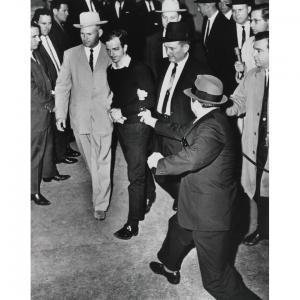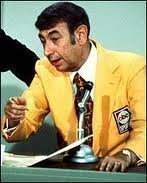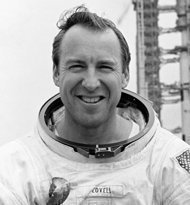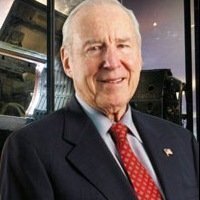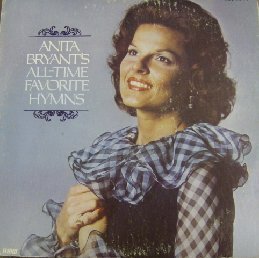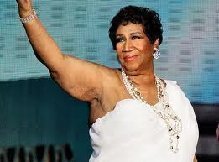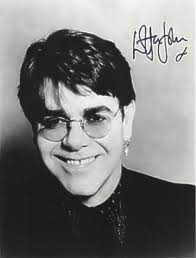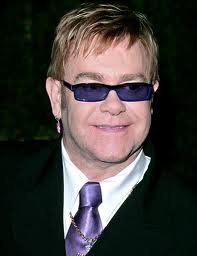Alaska (/əˈlæskə/ ⓘ ə-LASS-kə) is a non-contiguous U.S. state on the northwest extremity of North America. It borders the Canadian province of British Columbia and the Yukon territory to the east; it shares a western maritime border in the Bering Strait with Russia's Chukotka Autonomous Okrug. The Chukchi and Beaufort Seas of the Arctic Ocean lie to the north and the Pacific Ocean lies to the south. Technically a semi-exclave of the U.S., it is the largest exclave in the world.
Alaska is the largest U.S. state by area, comprising more total area than the next three largest states of Texas, California and Montana combined, and is the seventh-largest subnational division in the world. It is the third-least populous and most sparsely populated U.S. state, but is, with a population of 736,081 as of 2020, the continent's most populous territory located mostly north of the 60th parallel, with more than quadruple the combined populations of Northern Canada and Greenland. The state capital of Juneau is the second-largest city in the United States by area. The former capital of Alaska, Sitka, is the largest U.S. city by area. The state's most populous city is Anchorage. Approximately half of Alaska's residents live within the Anchorage metropolitan area.
Indigenous people have lived in Alaska for thousands of years, and it is widely believed that the region served as the entry point for the initial settlement of North America by way of the Bering land bridge. The Russian Empire was the first to actively colonize the area beginning in the 18th century, eventually establishing Russian America, which spanned most of the current state, and promoted and maintained a native Alaskan Creole population. The expense and logistical difficulty of maintaining this distant possession prompted its sale to the U.S. in 1867 for US$7.2 million (equivalent to $151 million in 2022). The area went through several administrative changes before becoming organized as a territory on May 11, 1912. It was admitted as the 49th state of the U.S. on January 3, 1959.
Abundant natural resources have enabled Alaska—with one of the smallest state economies—to have one of the highest per capita incomes, with commercial fishing, and the extraction of natural gas and oil, dominating Alaska's economy. U.S. Armed Forces bases and tourism also contribute to the economy; more than half the state is federally-owned land containing national forests, national parks, and wildlife refuges. It is among the most irreligious states, one of the first to legalize recreational marijuana, and is known for its libertarian-leaning political culture, generally supporting the Republican Party in national elections. The Indigenous population of Alaska is proportionally the second highest of any U.S. state, at over 15 percent, after only Hawaii.
Etymology
The name "Alaska" (Russian: Аляска, romanized: Alyaska) was introduced in the Russian colonial period when it was used to refer to the Alaska Peninsula. It was derived from an Aleut-language idiom, alaxsxaq, meaning "the mainland" or, more literally, "the object towards which the action of the sea is directed".
Statehood
Statehood for Alaska was an important cause of James Wickersham early in his tenure as a congressional delegate. Decades later, the statehood movement gained its first real momentum following a territorial referendum in 1946. The Alaska Statehood Committee and Alaska's Constitutional Convention would soon follow. Statehood supporters also found themselves fighting major battles against political foes, mostly in the U.S. Congress but also within Alaska. Statehood was approved by the U.S. Congress on July 7, 1958; Alaska was officially proclaimed a state on January 3, 1959.
Geography
Located at the northwest corner of North America, Alaska is the northernmost and westernmost state in the United States, but also has the most easterly longitude in the United States because the Aleutian Islands extend into the Eastern Hemisphere. Alaska is the only non-contiguous U.S. state on continental North America; about 500 miles of British Columbia (Canada) separates Alaska from Washington. It is technically part of the continental U.S., but is not usually included in the colloquial use of the term; Alaska is not part of the contiguous U.S., often called "the Lower 48". The capital city, Juneau, is situated on the mainland of the North American continent but is not connected by road to the rest of the North American highway system.
The state is bordered by Canada's Yukon and British Columbia to the east (making it the only state to only border a Canadian territory); the Gulf of Alaska and the Pacific Ocean to the south and southwest; the Bering Sea, Bering Strait, and Chukchi Sea to the west; and the Arctic Ocean to the north. Alaska's territorial waters touch Russia's territorial waters in the Bering Strait, as the Russian Big Diomede Island and Alaskan Little Diomede Island are only 3 miles apart. Alaska has a longer coastline than all the other U.S. states combined.
At 663,268 square miles in total area, Alaska is by far the largest state in the United States. Alaska is more than twice the size of the second-largest U.S. state (Texas), and it is larger than the next three largest states (Texas, California, and Montana) combined. Alaska is the seventh largest subnational division in the world. If it was an independent nation would be the 18th largest country in the world, almost the same size as Iran.
Fairbanks Alaska:
Anchorage Alaska:
With its myriad islands, Alaska has nearly 34,000 miles of tidal shoreline. The Aleutian Islands chain extends west from the southern tip of the Alaska Peninsula. Many active volcanoes are found in the Aleutians and in coastal regions. Unimak Island, for example, is home to Mount Shishaldin, which is an occasionally smoldering volcano that rises to 10,000 feet above the North Pacific. The chain of volcanoes extends to Mount Spurr, west of Anchorage on the mainland. Geologists have identified Alaska as part of Wrangellia, a large region consisting of multiple states and Canadian provinces in the Pacific Northwest, which is actively undergoing continent building.
If you want to read a whole lot more, go here: https://en.wikipedia.org/wiki/Alaska
- SERVES
- 4
- CHILL TIME
- 2 Hr
Enjoy the fresh tastes of a homemade cucumber salad with our recipe for Crisp Cucumber Salad. It's got a touch of sweetness that really complements the tangy vinegar and makes it extra-delicious. Plus, red bell peppers give it such a nice pop of color too! Your family will love the crunchy, crispy texture of the cucumbers so much that they'll be begging for this cucumber salad recipe all summer long.
- 2 cucumbers, thinly sliced (see Tip)
- 4 scallions, thinly sliced
- 1/2 small red bell pepper, chopped
- 1/4 cup sour cream
- 3 tablespoons white vinegar
- 3 tablespoons sugar
- 1 1/4 teaspoon salt
- 1/4 teaspoon black pepper
- In a medium bowl, combine cucumbers, scallions, and red pepper.
- In a small bowl, combine remaining ingredients; pour over cucumber mixture. Cover and chill at least 2 hours before tossing and serving.
Tip
HOW TO OBSERVE
- Volunteering for your local veteran organization
- Donate to a veteran service organization
- Adopt a Medal of Honor grave site
- Fly the U.S. flag at your home or business
- Visit the Tomb of the Unknown Soldier
- Visit local memorial sites
NATIONAL MEDAL OF HONOR DAY HISTORY
Q. Have any women received the Medal of Honor?
A. Yes. Following the American Civil War, President Andrew Jackson presented Dr. Mary Edwards Walker with the Medal of Honor for her volunteer work with the Union Army, often going behind enemy lines to care for civilians.
Q. Has any U.S. president received the Medal of Honor?
A. Yes, but only one. Theodore Roosevelt received the honor for his services during the Spanish American War. It was awarded to Roosevelt posthumously by President Bill Clinton in 2001.


.svg.jpg)

.jpg)


